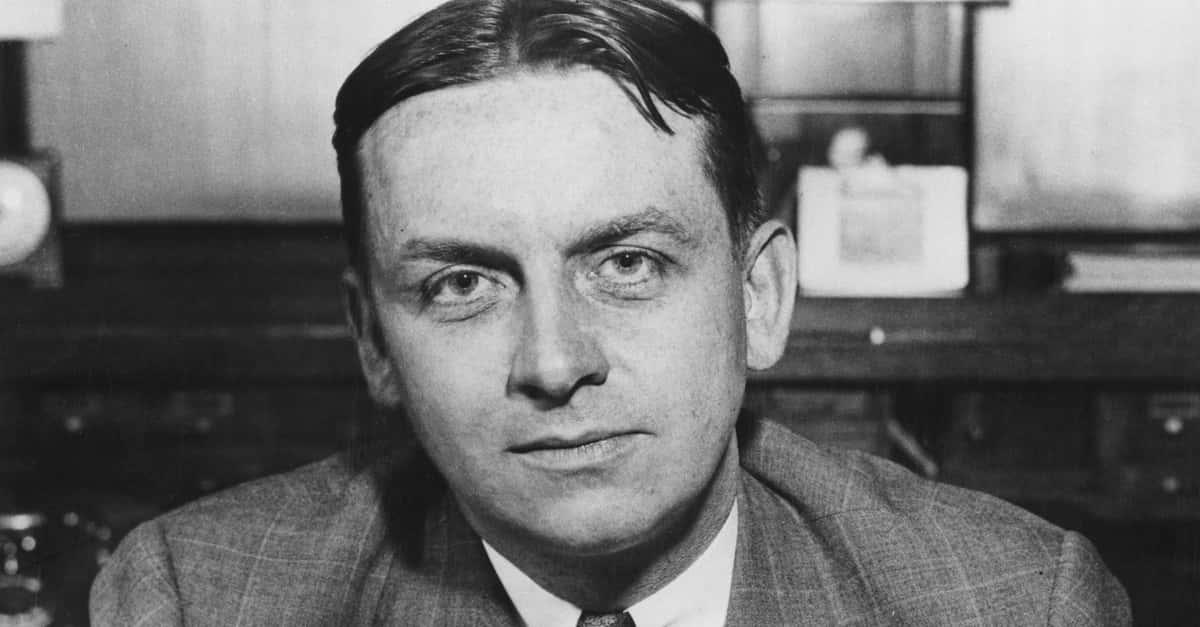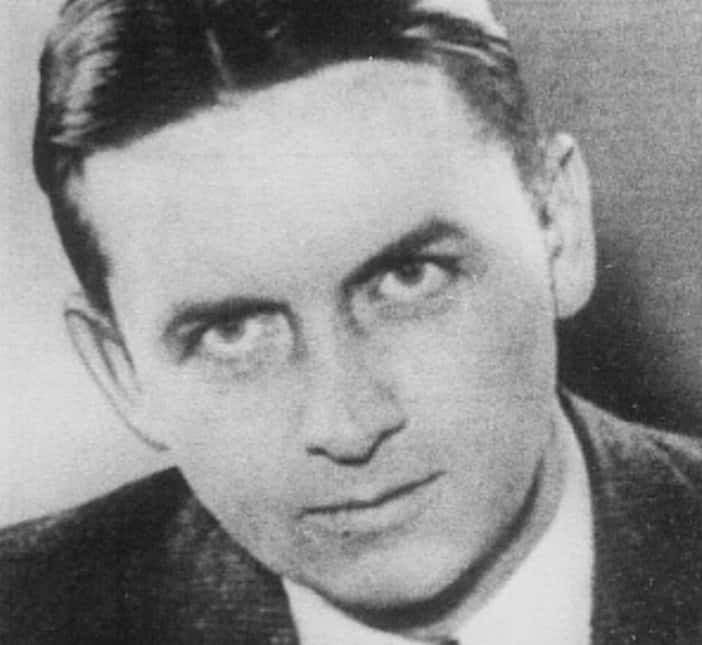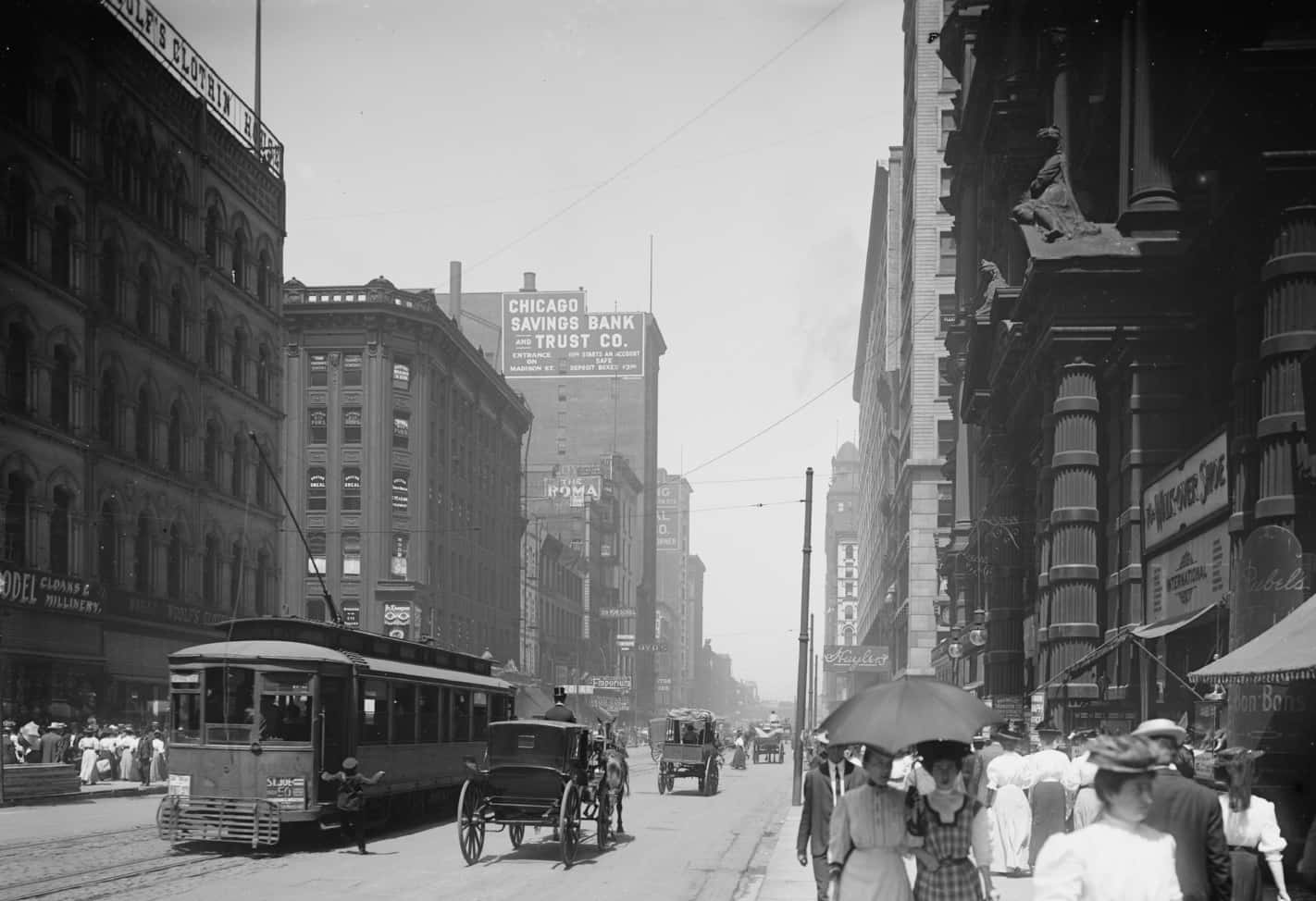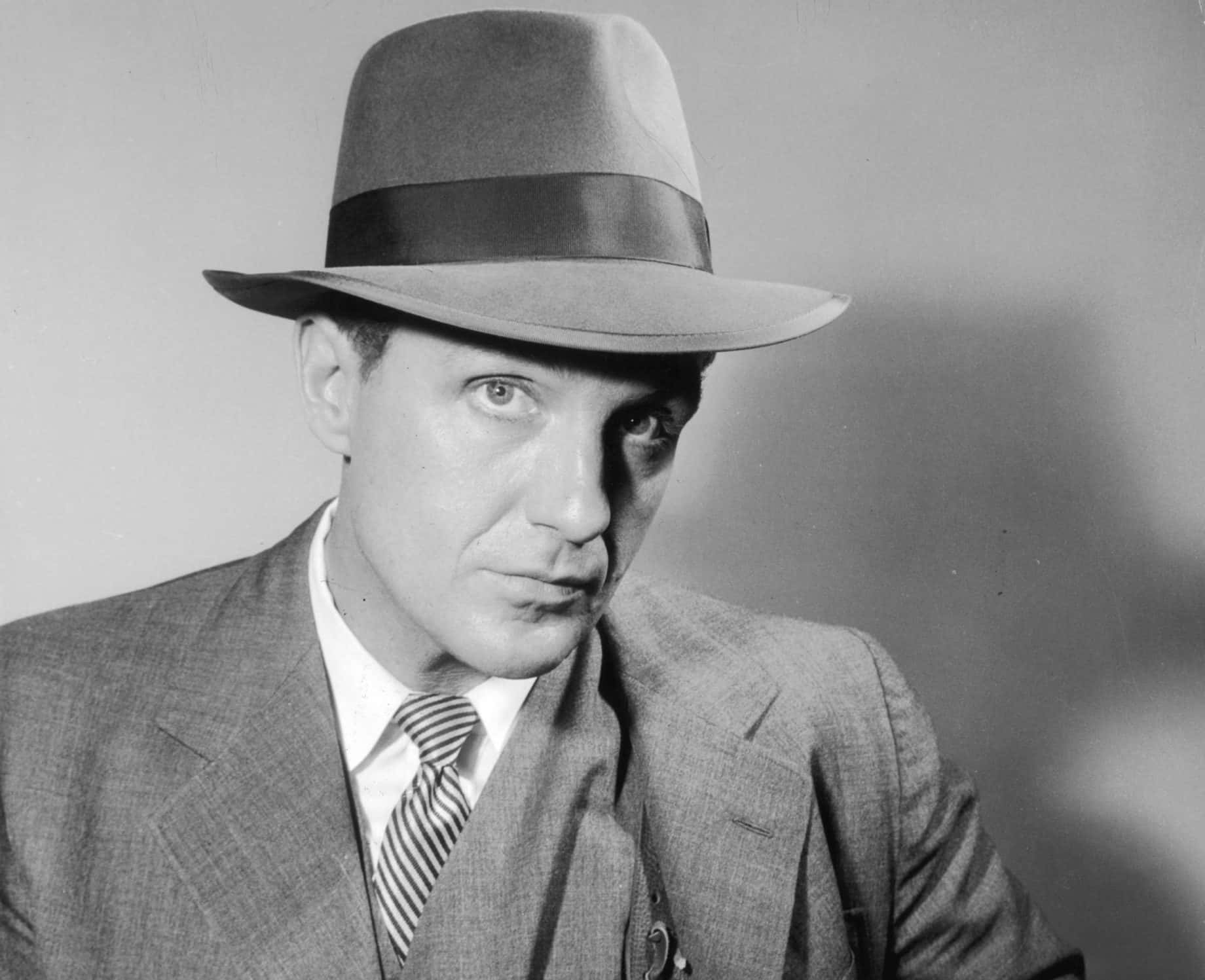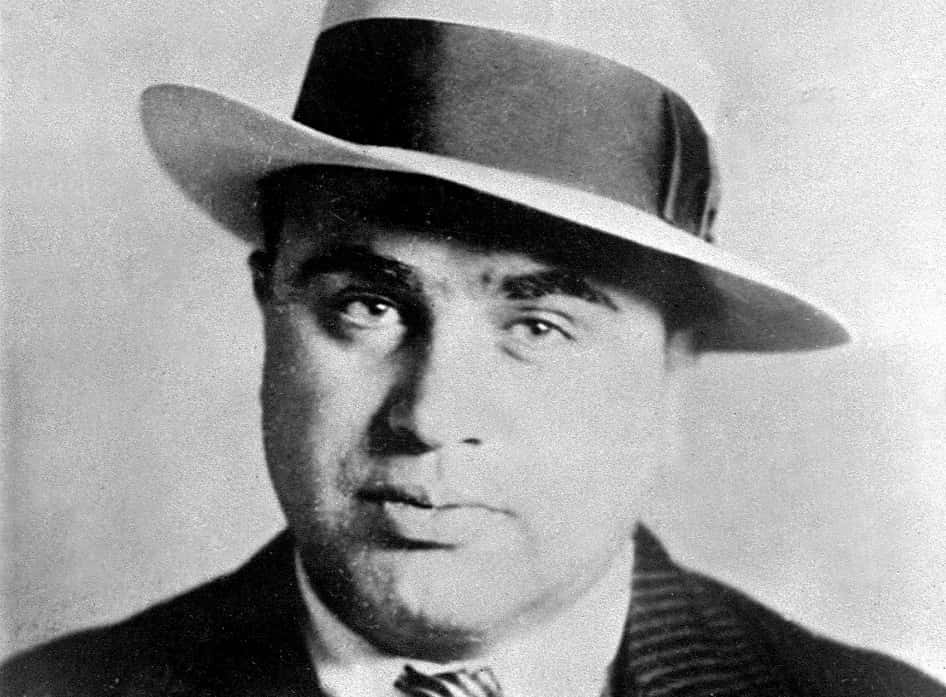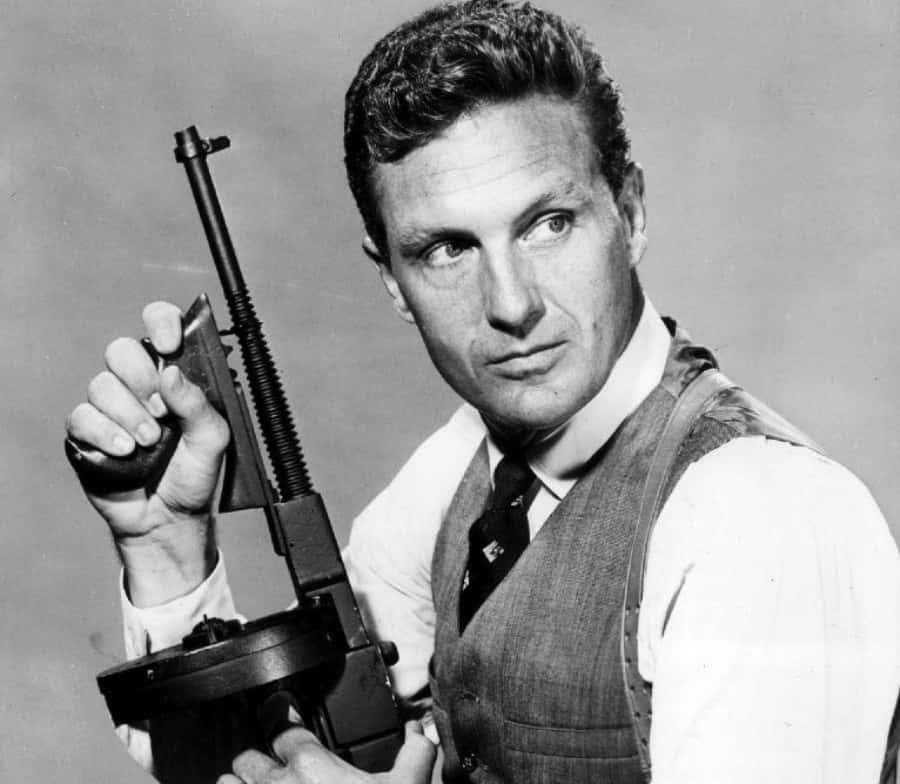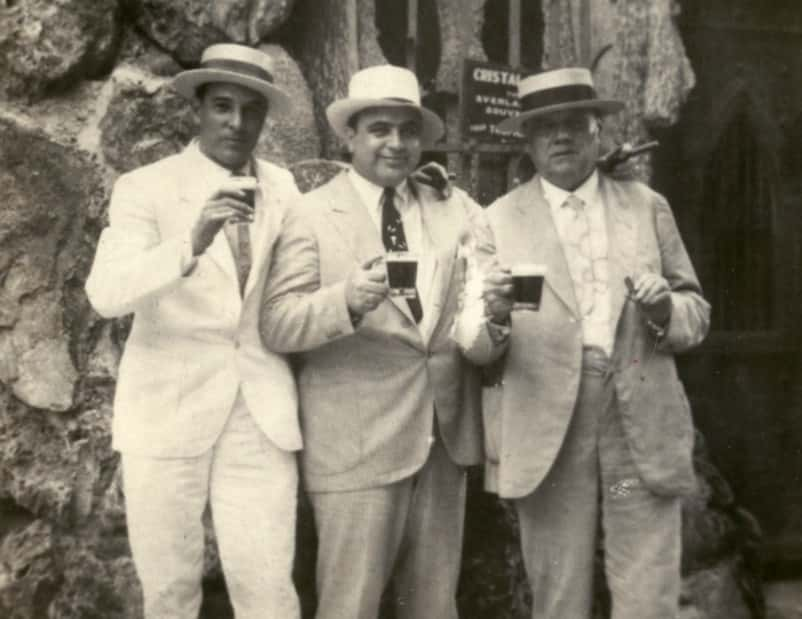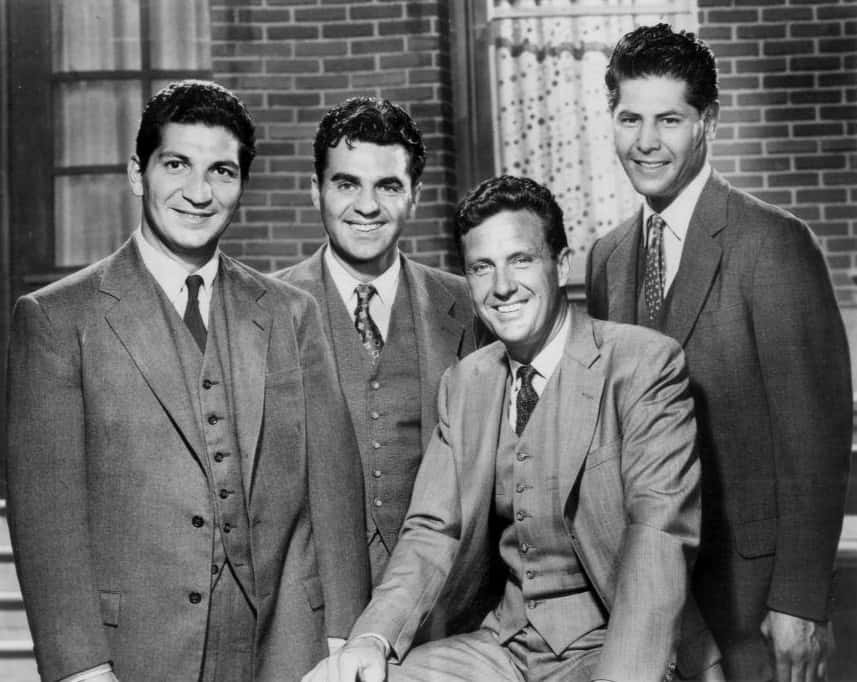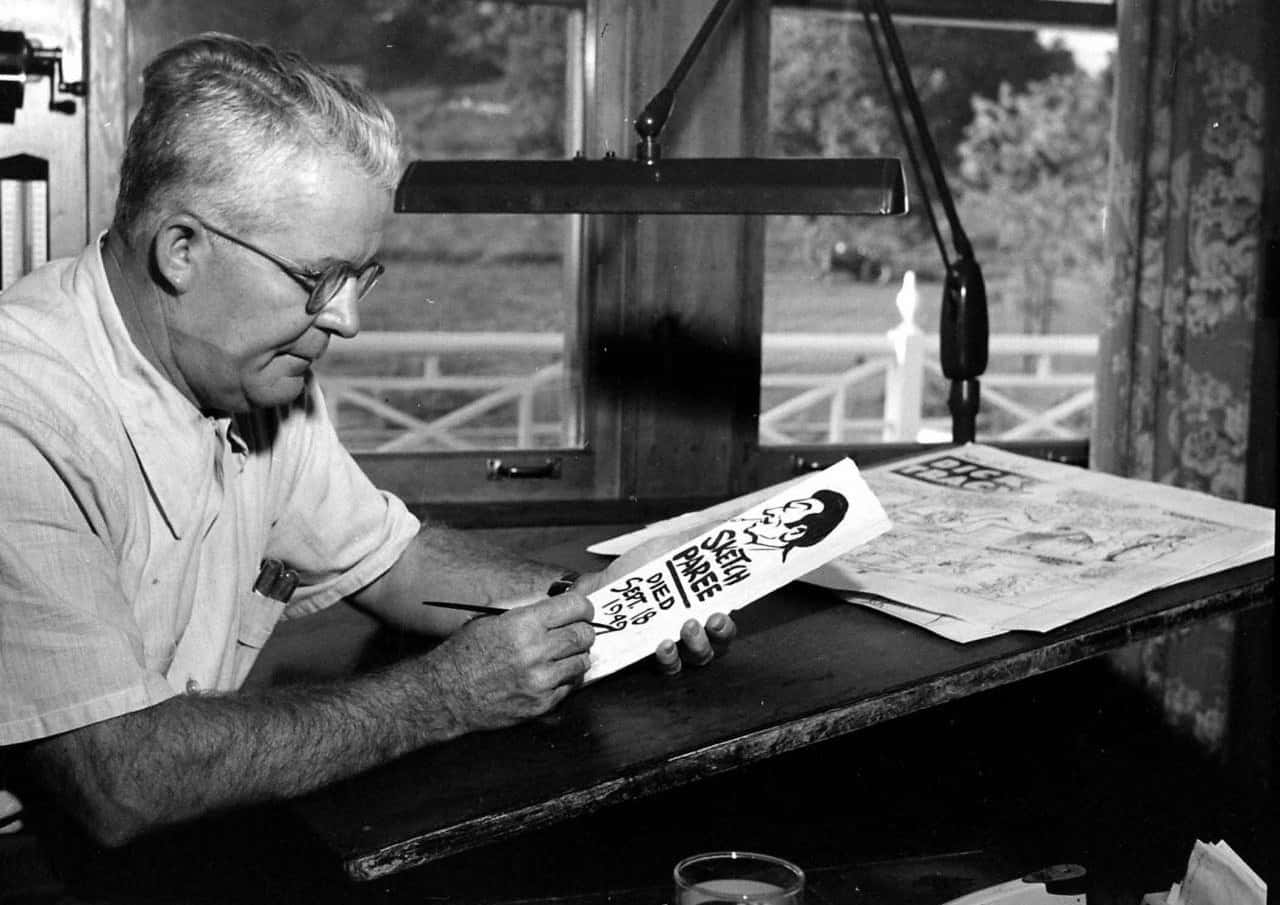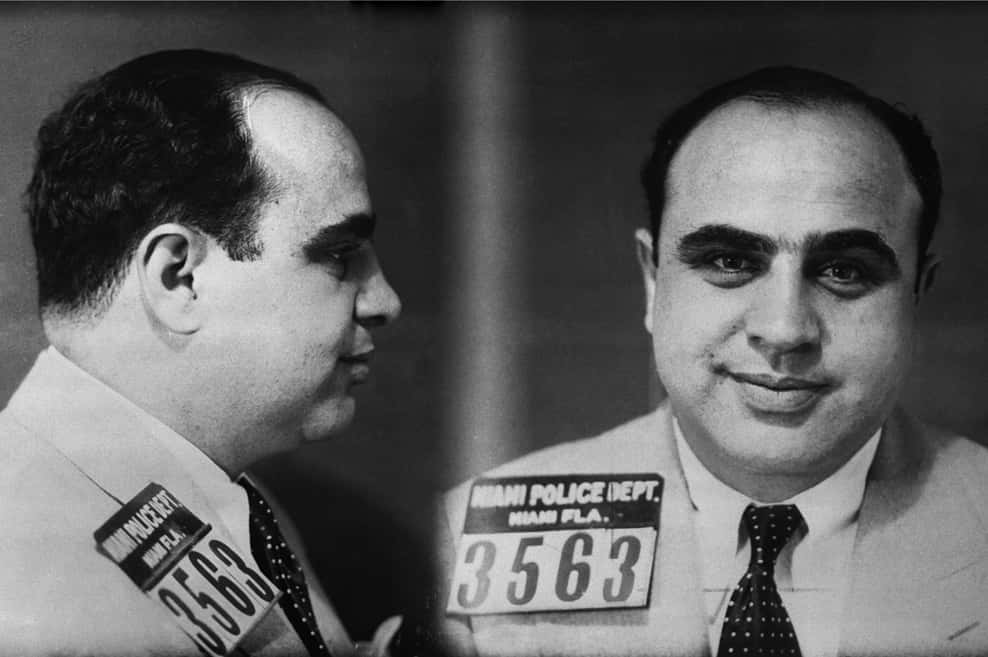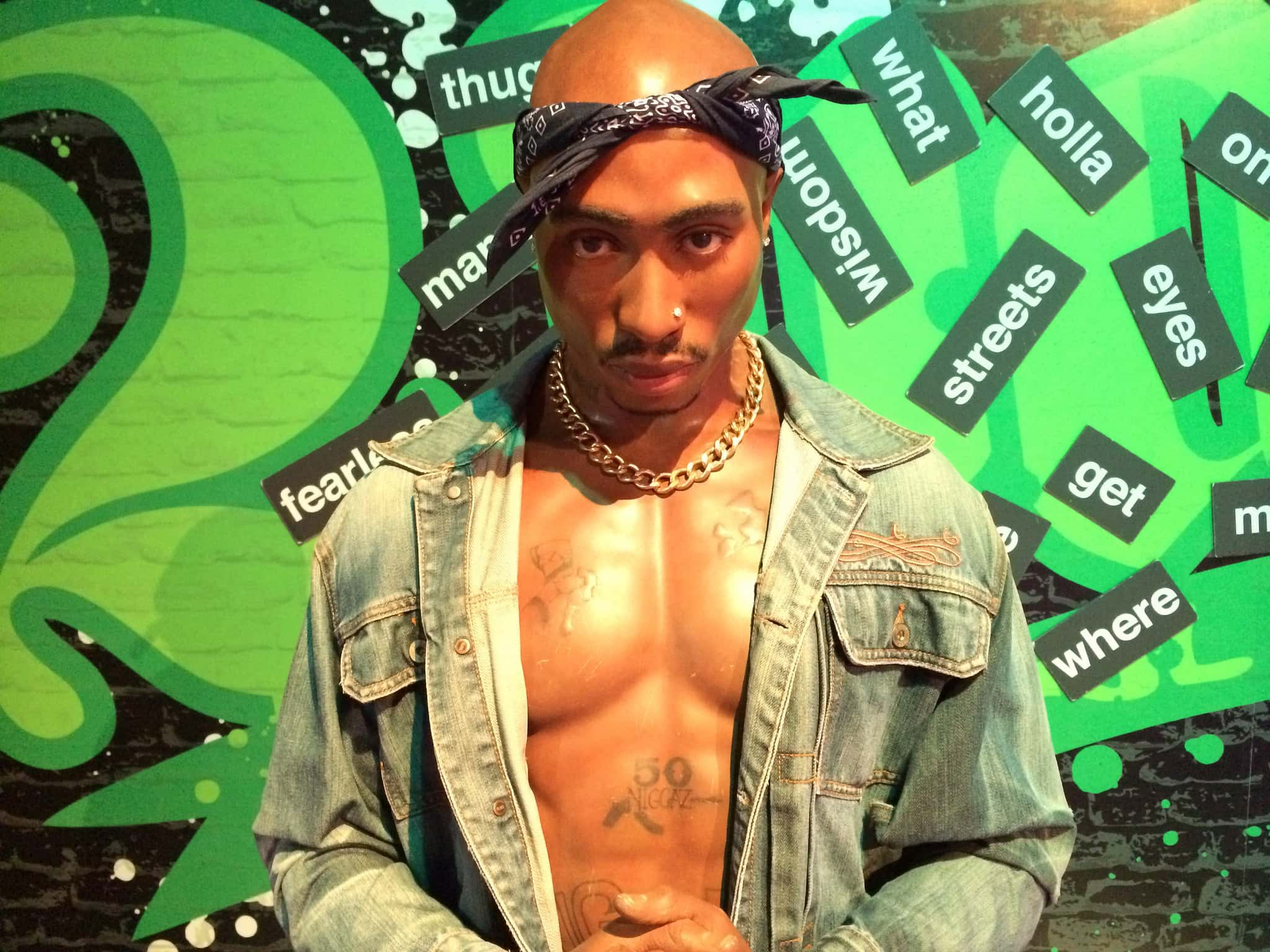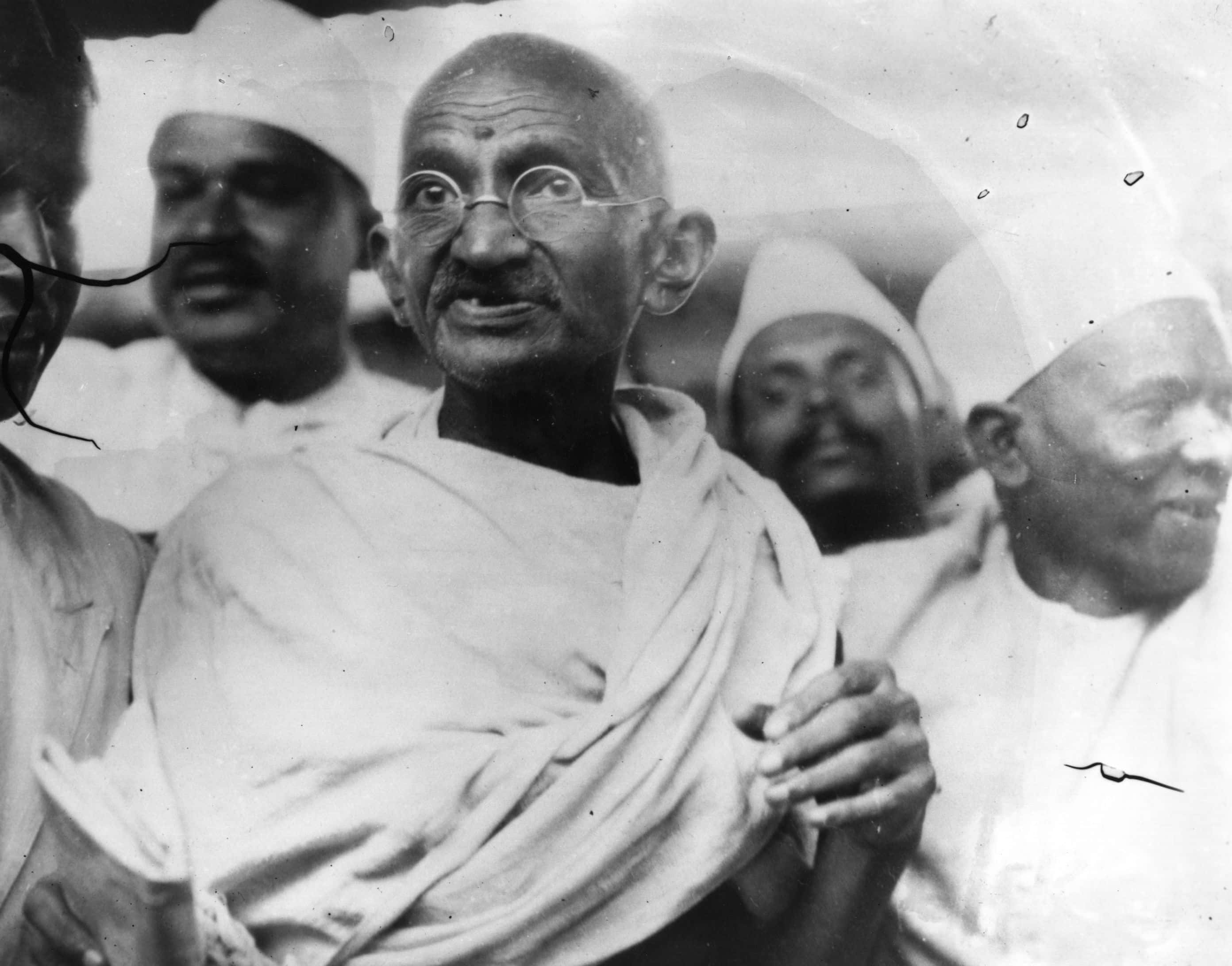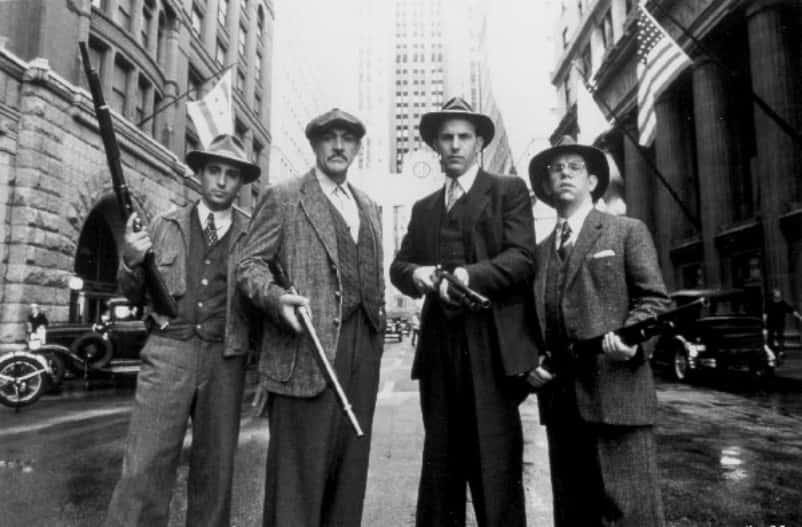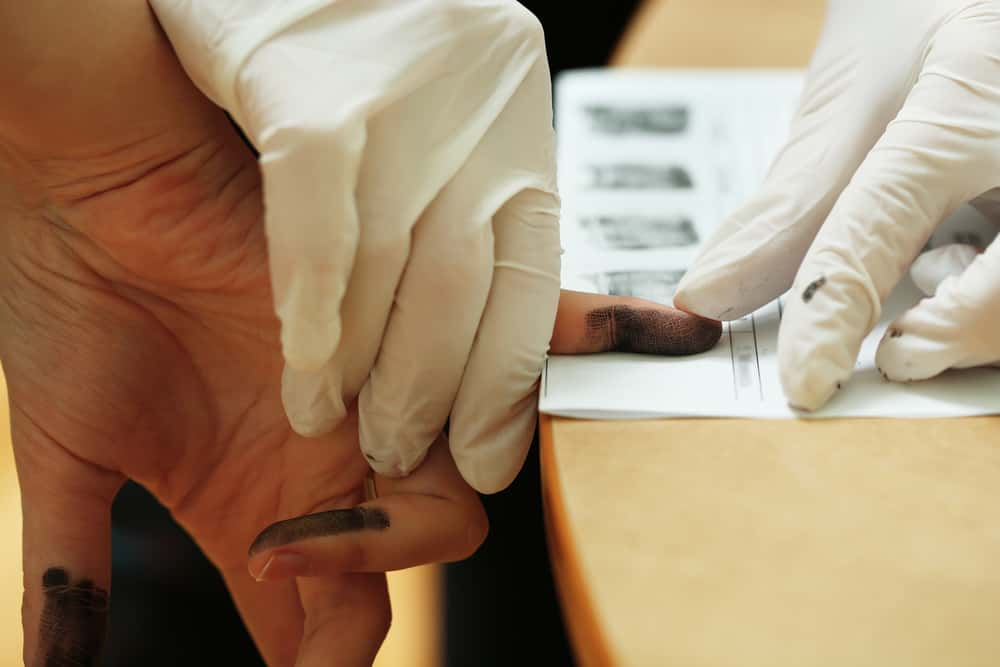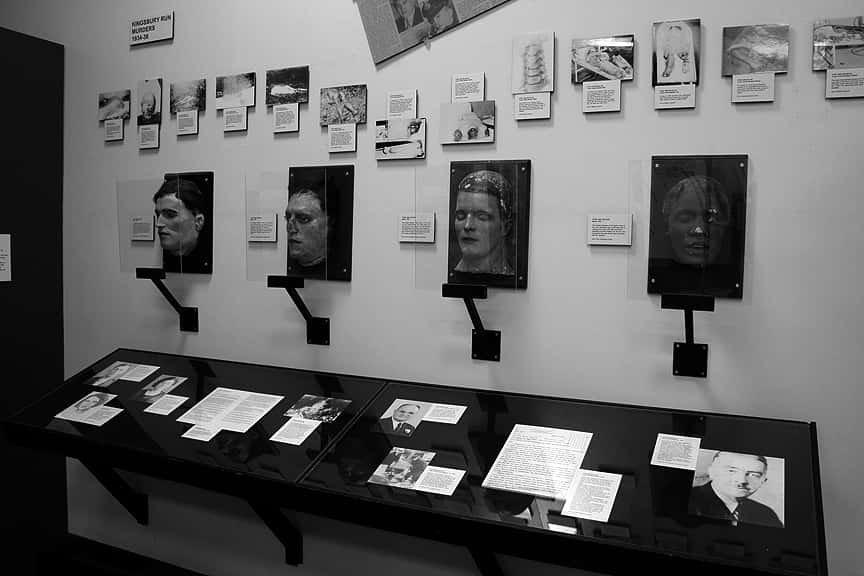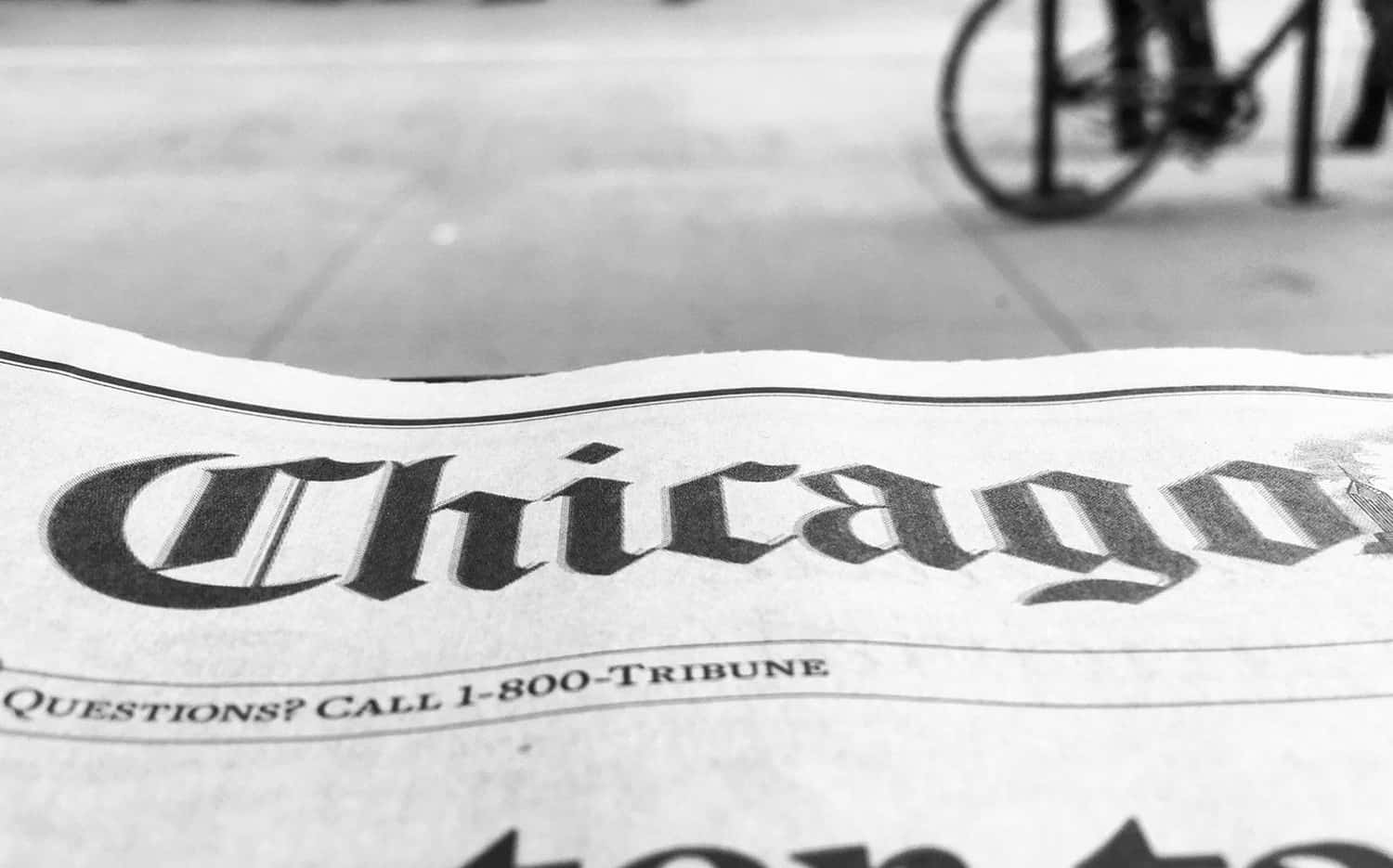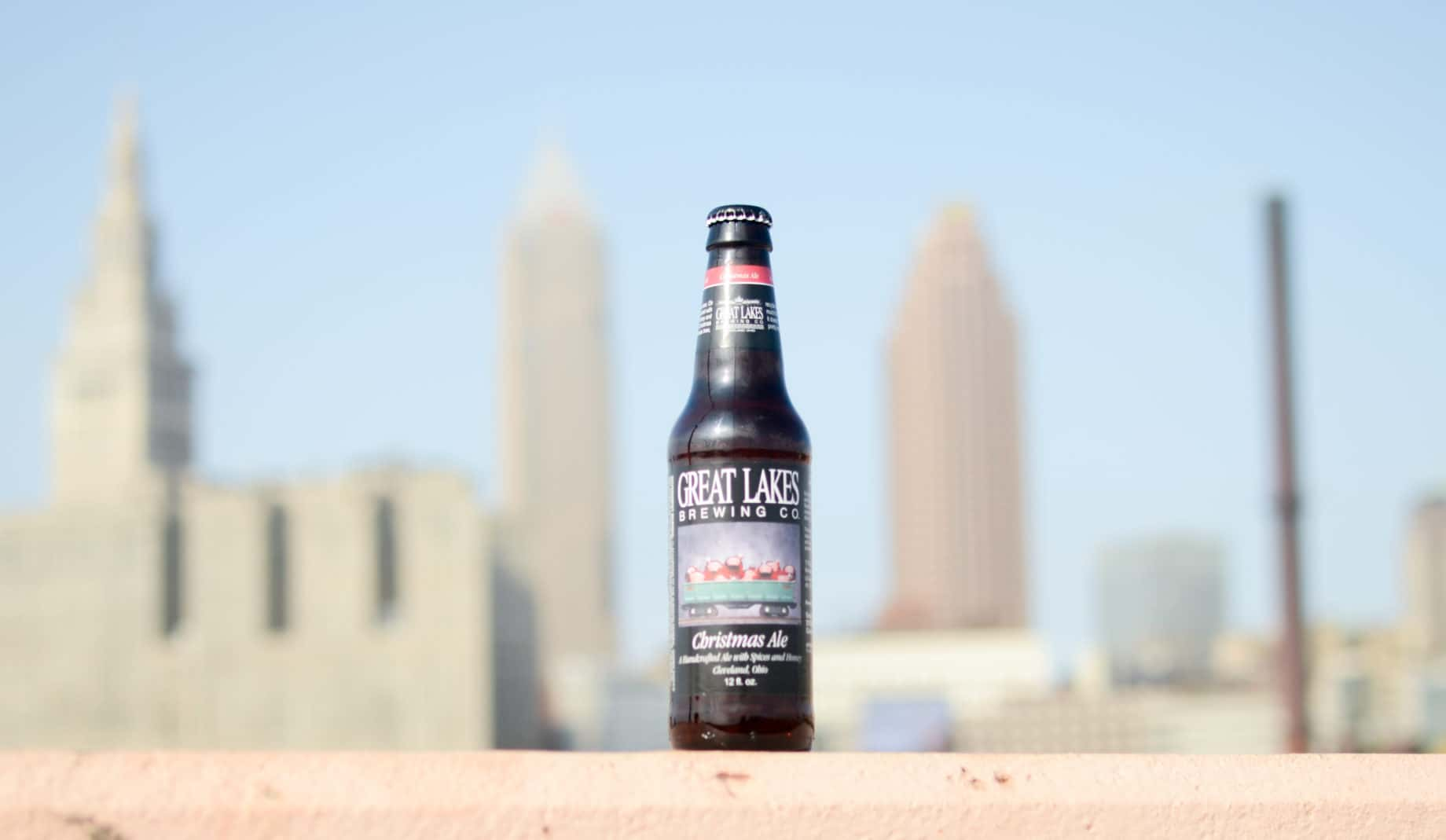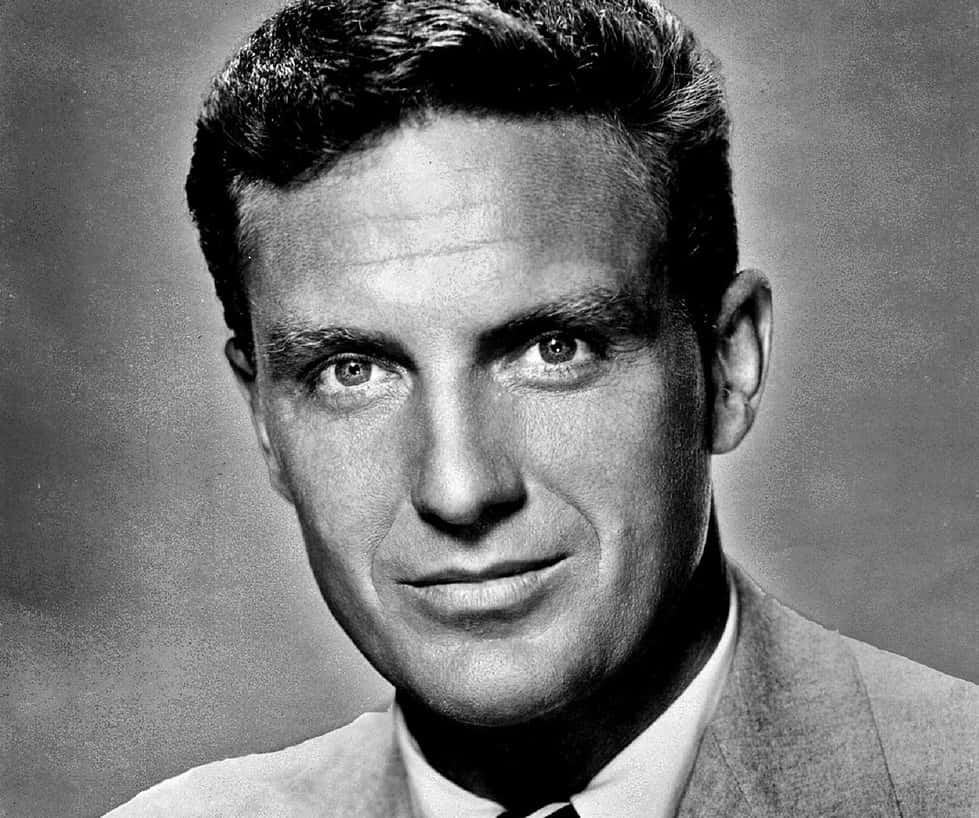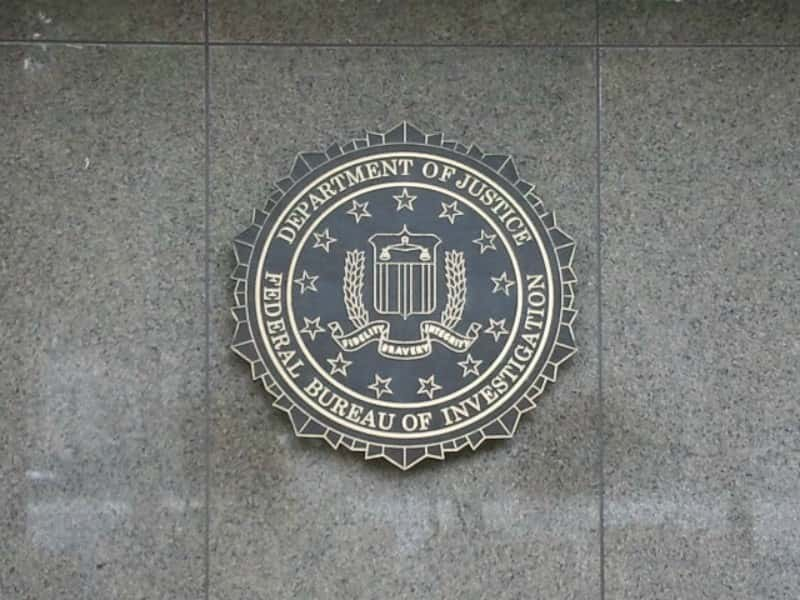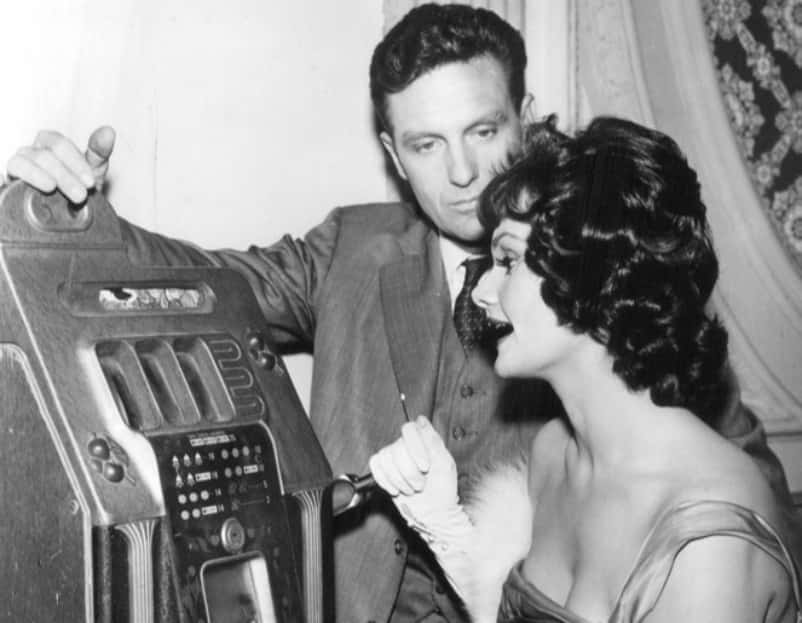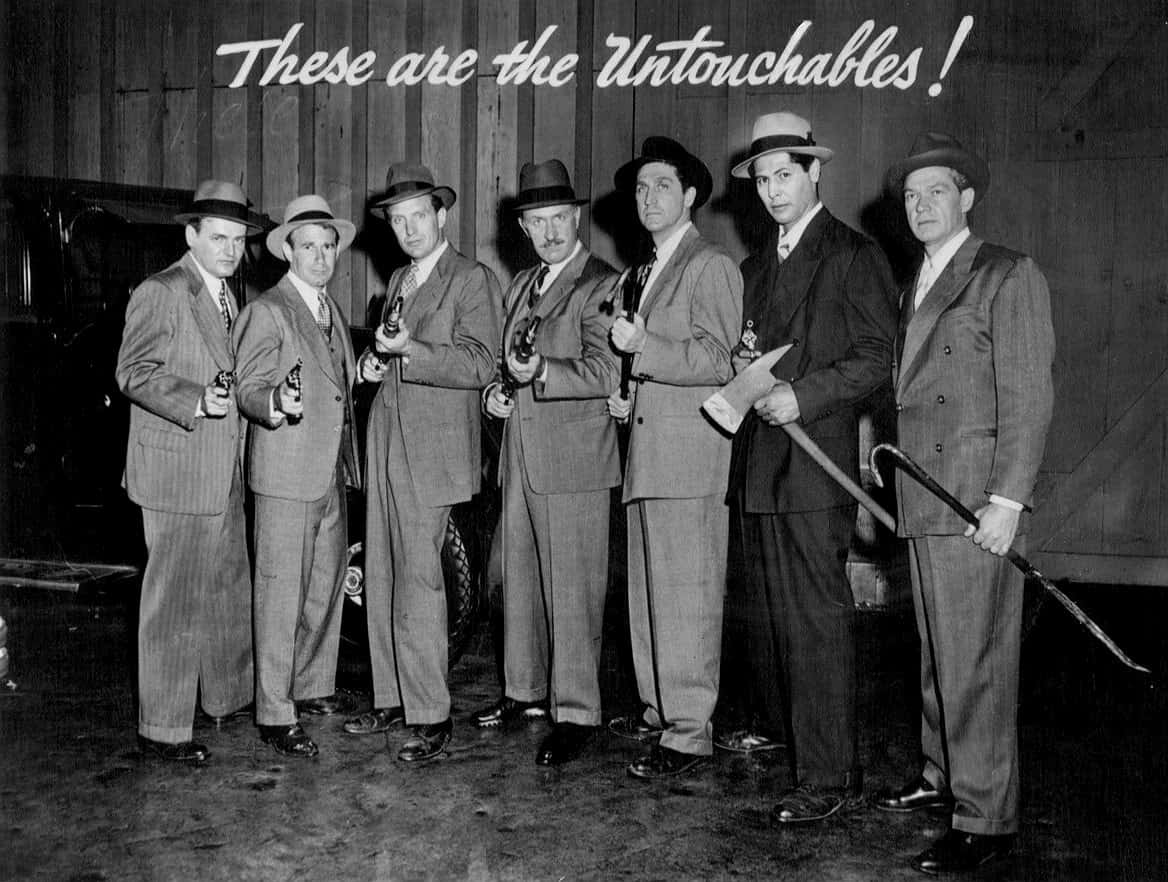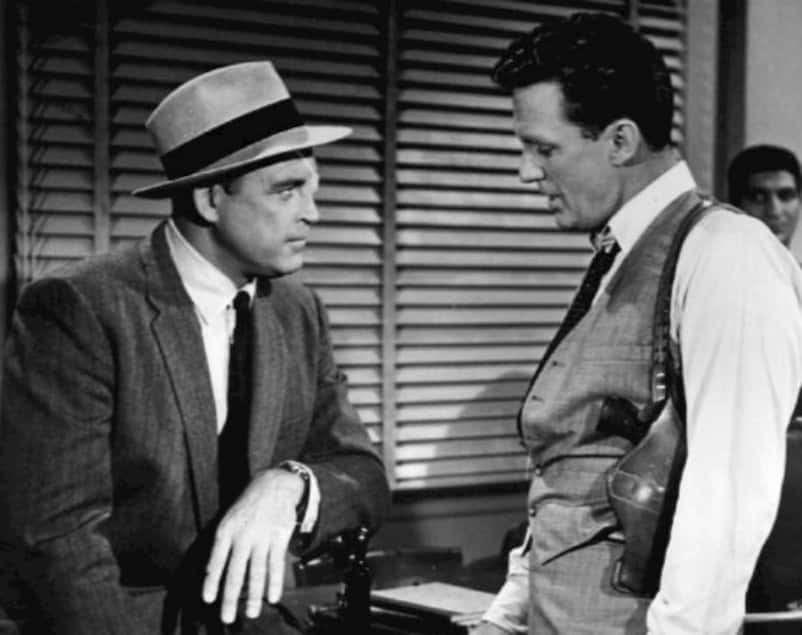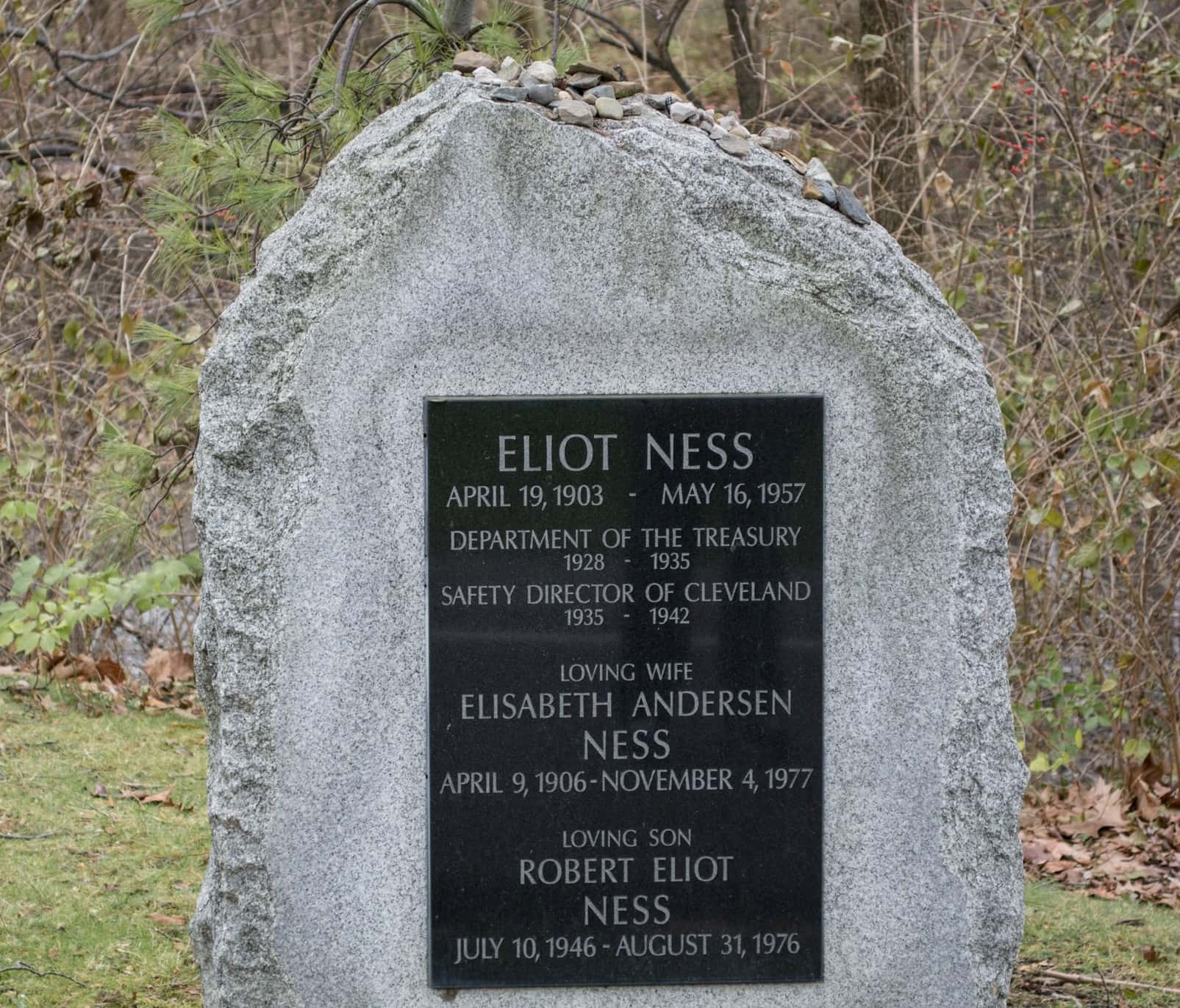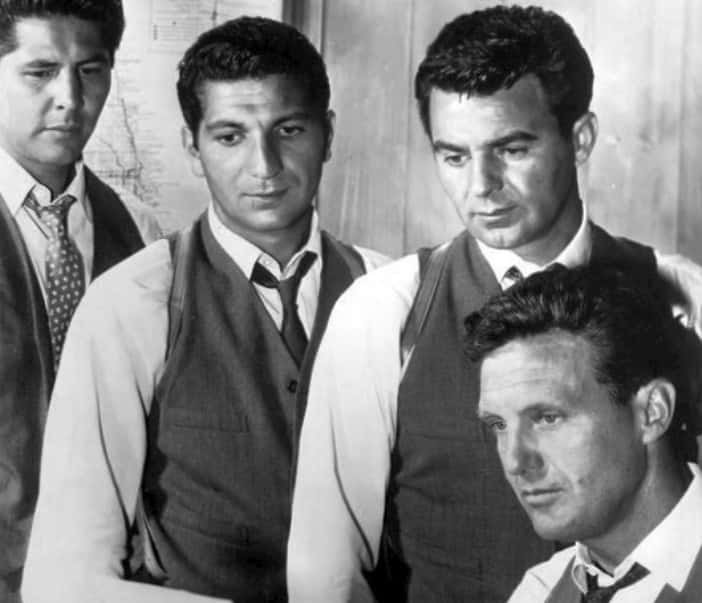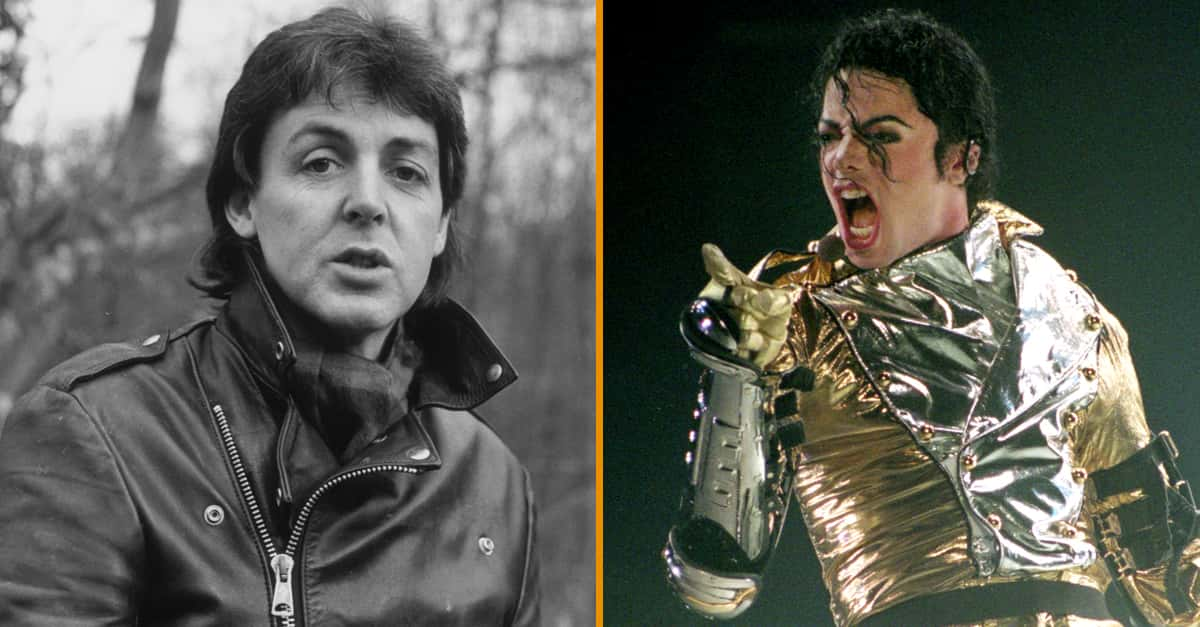Eliot Ness was an American Prohibition-era law enforcement agent. He was best known for leading a special Chicago task force known as “The Untouchables,” whose mission was to bring down the infamous gangster Al Capone. His posthumous memoir The Untouchables led to multiple TV and film portrayals, solidifying Ness's reputation as an incorruptible crime fighter. Below are 50 untouchable facts about the famous agent.
1.Hello Neighbor
Long before Eliot Ness took up the task of bringing down Al Capone, he and Capone lived on the same street for about five years—unbeknownst to both. In 1923, Capone bought a Chicago two-flat (equivalent to a duplex) for his family on Prairie Avenue on Chicago’s South Side. Ness, who was a 20-year-old student at the time, lived with his parents, way down at the other end of the street. They moved in 1928.
2. Humble Beginnings
Eliot Ness was born in Chicago in 1903 to Norwegian immigrants Peter Ness, a baker, and Emma King Ness, the daughter of a British engineer and Norwegian dressmaker. As a youth, he worked in his father’s bakery and kept a paper route, demonstrating that he definitely wasn’t afraid of a little hard work!
3. A Slight Adjustment
When Eliot Ness joined the Prohibition Bureau, he was 23 years old and he did quite well carving out a name for himself there. The following year, the federal government officially recognized the Bureau, which should have been great for Ness—except for the fact that they raised the minimum age for an agent from 24 to 25.
Ness, only being 24 at the time, was driven to desperate lengths: he changed his birth year from 1903 to 1902 so that he could meet the minimum age requirement and remain in the bureau. Aren’t federal agents supposed to be honest?
4. Universally Hated
Prohibition wasn’t exactly popular in the US, and possibly the only thing more unpopular were the prohibition agents. Amazingly, Ness’s legend helped turn public enemy #1 into a national hero, and he became the man who saved Chicago from the evil Al Capone.
5. Brought Back from Obscurity
At the time of his death in 1957, Ness was barely a passing thought in the public consciousness, but all of that changed when the book The Untouchables was published seven months later. The finished memoir was mostly fictional and read like a classic detective novel, but it sold seven million copies and made Ness a household name and an American icon.
6. Background Checks
After graduating from the University of Chicago with a degree in economics, Eliot Ness got a job as an investigator for the Retail Credit Company. He primarily conducted background checks and credit verification for people applying for insurance. It may not have been that exciting, but at least he had lots of time to complete a master’s degree in Criminology.
7. Sherlock, Shakespeare, and Opera
When he was a kid, Ness loved to read and would often delve into the adventures of Sherlock Holmes. As an adult, his tastes shifted to Shakespeare and the classics, and he was said to have spent evenings lying on his floor reading and listening to opera. Not a bad way to spend his time.
8. Unlucky in Love
A casualty of Ness’s work was his personal life. He was married three times and divorced twice. He adopted one son, Robert, with his third wife Elisabeth Andersen Seaver. He remained married to Seaver until his death, and she also ended outliving their son, who died from leukemia in 1976.
9. With a Little Encouragement
Eliot Ness was good friends with his brother-in-law Alexander Jamie, who was married to older sister Clara. Jamie was an officer in the Prohibition Bureau, and Ness was often invited along on surveillance missions. From this, he caught the bug and joined the Chicago Branch of the US Treasury Department in 1927.

History's most fascinating stories and darkest secrets, delivered to your inbox daily.
10. Not What They Would Have Chosen
Not surprisingly, Ness’s parents didn’t exactly imagine law enforcement as a career path for their son and had always expected him to go into business. Who knows what Ness would have done without his brother-in-law’s influence. Maybe he would have become an accountant.
11.Not a Gun Guy
Contrary to the film/television versions of Eliot Ness, he was not a big fan of guns in real life. He thought gun-toting gangsters were chickens and would only wear a gun if he absolutely had to. In fact, he was often known to wear just his holster and not carry a gun while at work.
12. Enforcing Prohibition
In 1928, Eliot Ness was transferred from the treasury department to the Justice Department to work with the Prohibition Bureau, which was responsible for cleaning up bootlegging, and by proxy, putting an end to a lucrative business for Chicago’s gangsters, and especially Al Capone.
13. Making Him Proud
From a young age, Eliot Ness wanted to be just like his brother-in-law Alexander Jamie, whom he greatly admired. Ness’s father was too busy working to spend much time with him and Jamie was like a father to him. He taught Ness how to drive and how to shoot, and the importance of honesty above all else.
14. Take Him Down
By 1930, Chicago had become one of the most crime-ridden cities in the US and attorney Frank J. Loesch of the Chicago Crime Commission appealed to the newly elected President Herbert Hoover to do something about Al Capone. The Bureau of Internal Revenue was already investigating him for tax fraud, but they were hoping to get him faster on prohibition violation charges.
15. He’s Honest
Being that Eliot Ness was still a relatively green agent and not even 30, he probably seemed an odd choice to lead such an important task force. Despite his young age and inexperience, he had some important qualities. He had a reputation of being a genuine law-and-order guy, he was reliable, honest, and most importantly, had zero tolerance for lawlessness and corruption.
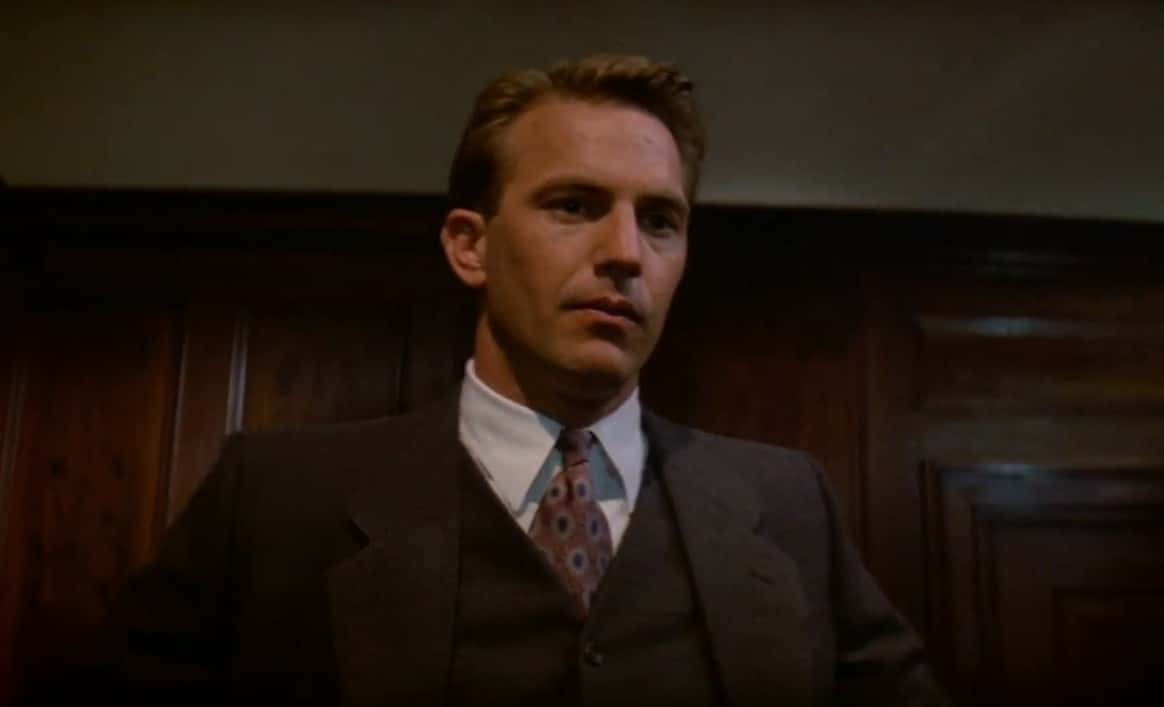 The Untouchables, Paramount Pictures
The Untouchables, Paramount Pictures
16.. Find More Like You
Ness’s first task after being selected as the leader of the group that came to be known as the “Untouchables” was to find men who would be honest and incorruptible to battle organized crime and Al Capone. He found his initial group of men by searching personnel files and asking his brother-in-law for his recommendations.
From those 50 names, he selected his first group of 10.
17. The Makings of a Good Story
The memoir that became The Untouchables wasn’t exactly Ness’s idea. Ness’s business partner and drinking buddy was friends with Oscar Fraley, a journalist for the United Press International, and introduced him to Ness. Phelps encouraged Ness to tell Fraley some stories about his time as a prohibition agent, and Fraley quickly jumped on it, even offering to ghostwrite it for Ness.
18. Without His Approval
When Fraley sent Ness a galley copy of the book, Ness just couldn’t bring himself to agree to what he’d written. Not believing that the book would in any way become a success, he gave up all rights to the book and Fraley went ahead and published it even without Ness’s approval. He might have regretted that decision, had he lived to see its success.
19. Inspiring a Comic
While Eliot Ness was busy making headlines in Chicago for his crime-fighting efforts, cartoonist Chester Gould took inspiration from the newspaper stories about Ness and the Untouchables and created the popular comic strip detective Dick Tracy. The strip debuted in 1931 during Capone’s trial and incorporated many of the real-life techniques such as wiretapping and lie detector tests that Ness helped pioneer.
20. Their Only Meeting
Surprisingly, for all of Ness’s efforts to take down Capone, he and the gangster only came face-to-face once. While some historians have claimed they never met, according to the May 4, 1932 issue of The Chicago Tribune, Ness was one of the agents to accompany Capone to the train to prison, and they have a photo to back it up. Pictures never lie, right?
21. Studying the Rules
Eliot Ness took his badge incredibly seriously, and no further proof was needed than the fact that he always carried his Prohibition Bureau rule book in his jacket pocket, and that he spent his free time searching for speakeasies. No wonder he was considered a goody-goody.
22. Smile for the Cameras!
Ness may not have had movie-star good looks, but his efforts to take down Capone earned him celebrity status. He was always in the news, and he could be counted on to present a polished image and offer reporters a good quote for their stories. He even started receiving fan mail at the Prohibition Bureau Offices in Chicago, which certainly helped stoke his ego.
23. What’s Your Price?
Al Capone was used to paying people off to stay ahead of and above the law so it never occurred to him that Ness and his team couldn’t be bought. Capone offered Ness and his agents a weekly sum of $2,000 to look the other way, but they refused the bribe—despite the fact that it would have been almost as much as they made in a year.
And that’s why they became known as the Untouchables.
24. Untouchable Like Ness
In a 1995 song titled California Love Ness is given a nod by the writer/rapper Tupac. The verse rapped by Dr. Dre refers to California as the “Wild Wild West” and as a “state that’s untouchable like Eliot Ness.”
25. Squeezing his Wallet
Above all, Al Capone was in the business of making money, and the only way to hurt a guy like that is through his wallet. Although Ness and the Untouchables didn’t personally bring him down, they did shut down 19 distilleries and breweries worth about $1,000,000 and seized 20 stills. Overall, they dumped thousands of gallons of beer and alcohol, putting a huge dent in his operations and his income.
26. Thanks to Mrs. Gandhi
The nickname “The Untouchables” comes from an unlikely source. Charles Schwartz, the reporter who coined the name, took it from a news story about Mahatma Gandhi’s efforts to free the people at the lowest level of India’s social class system, also called the untouchables.
27. Dangerous Work
Trying to take down mobsters is dangerous work, and Ness wasn’t immune to some of the perils of the job. He had his car stolen three separate times, his office phone line was tapped, his parents watched, and three assassination attempts were made on Ness as well—but that wasn’t the worst part. One of Ness’s friends, who was an informant, got shot in the face four times.
Luckily for Ness, he himself was never injured, which makes untouchable a fitting nickname in a different way.
28. Ness Fest
Beginning in 2018, the town of Coudersport, Pennsylvania launched a three-day festival celebrating the life of Eliot Ness, who lived there for the last two years of his life. The festival has included a parade, Roaring 20s activities, a talent show, historical tours, and for the first time in 2019, a reunion of descendants of the untouchable agents who served with Ness.
Don’t forget your costume!
29. Facts First
In December 1935, a 33-year-old Ness was sworn in as the youngest safety director in the city’s history. The headline of the Plain Dealer, Cleveland’s local paper, read “Facts First, Then Talk, Says Ness” and reported that he intended to be “as conservative as possible” until he’d educated himself fully on the goings-on of the police and fire departments.
The paper also predicted that he’d create a “tremendous explosion with after-effects to last for years,” which he totally did.
30. The New Untouchables
Ness’s first task as Public Safety Director in 1935 was to clean up the totally corrupt police department. With funding from an anonymous group of businessmen known as the “Secret Six,” he worked to form his own version of the Untouchables in Cleveland. With 34 agents under his direction, he started investigating dishonest cops.
Their results were astonishing. His investigations led to 15 officers being brought to trial and another 200 crooked police being forced to resign. That’s getting the job done!
31. Innovation
As part of his efforts to clean up the police department, Ness implemented several new procedures for the department to make sure that his new officers would be well-equipped to do their jobs. He created a police training academy with a revised and more difficult civil service test. He wanted each officer fingerprinted and their character investigated, and he tested their personalities and their physical abilities.
He also insisted on a 2-year-probation for all new officers, which gave them time to prove themselves capable and worthy of the job. It must have worked because within 18 months, crime in the city dropped 25% and arrests and convictions increased by 20%.
32. Traffic Control
Funnily enough, one of Ness’s greatest achievements during his time in Cleveland was getting the traffic problem under control. Cleveland was the second-worst American city for traffic-related deaths and injuries with a staggering 250 deaths per year. He established traffic court, created a process for immediately testing suspected drunk drivers with immediate arrests if they were found to be drunk, and implemented harsh penalties for any officers found adjusting tickets.
By 1939, Cleveland had gone from second-worst to the safest city in the US, all thanks to his efforts.
33. Childhood Nickname
As a child, Ness was known to be a better dresser than most of the other children in his school, earning him the nickname “elegant mess.”
34. Unsolved Mystery
During his tenure as Safety director of Cleveland, the city was being terrorized by a brutal murderer known as the Torso Killer. No suspect was ever named or brought to trial, but Ness still tried to claim credit for solving the murders. Sounds like a slight exaggeration.
35. Dead Broke
Ness’s death in 1957 was far from notable. He dropped dead of a heart attack at age 54, leaving behind an estate that was an estimated $8,000 in debt. They were so broke that his widow couldn’t’ afford to have him buried, and had to have the body cremated and returned to her and her son in Cleveland.
36. Eliot Who?
At the time of his death, Ness’s name had become so forgotten that The New York Times didn’t even publish an obituary. His home paper The Chicago Tribune did mention it, but got his age wrong. Hardly what you’d expect for the modern-day hero.
37. Truth or Myth?
In Cleveland, a popular story about Eliot Ness claims that the bullet holes in the bar of the Great Lakes Brewing Co.’s brewpub were caused either by bullets meant for him or fired by him. Nobody knows for sure whether Ness would even have frequented a place like that, but the legend led the tavern to name an amber lager after him.
38. Just a Guy
The Untouchables book was such a success that Desilu Productions (Lucille Ball and Desi Arnaz’s production company) optioned the story for a two-part special starring Robert Stack as Ness. Stack, who earned an Emmy for the role, described Ness as “just a guy facing death without heroics.”
39. Not Quite an Agent
A popular misconception about Ness is that he was an actual FBI agent, but in truth, while he did work for Director J. Edgar Hoover for about a month before the Bureau of Prohibition was disbanded, his application to become an agent was turned down because of his strong relationship with the press and a disagreement over salary.
40. Failed Campaign
In 1947, Ness poured all of his savings into what ended up being a failed campaign to become mayor of Cleveland. It turned out Ness’s star had faded more than he believed, and his underestimation of the power of organized labor also helped lose him the campaign. He ended up suffering a humiliating loss of 2-1 to the incumbent. Ouch!
41. But Is He a Hero?
In January 2014, two American senators from Illinois and Ohio suggested renaming the headquarters of the Bureau of Alcohol, Tobacco, Firearms and Explosives in Washington, DC the “Eliot Ness ATF building.” If you go with the mythical version of Ness that most people are familiar with, it seems like a great idea, but Chicago’s lead historian, as well as a couple of Ness biographers, dissed the idea.
They claimed that his reputation is seriously inflated, and he doesn’t really deserve the honor.
42. Upstaging the Bureau
One person who wasn’t at all happy with the glorification of Ness’s story was FBI Director J. Edgar Hoover, who didn’t appreciate Ness being treated like a celebrity and overshadowing the bureau. He was so annoyed by him that he wrote “Beware of Ness” on the top of an internal memo, and called an episode of the television show that had Ness leading the FBI raid on the Barker gang a “fraud upon the public.”
43. A Different Kind of Clean Up
With his career in law enforcement basically over, Ness and his second wife, illustrator Evaline Michelow, moved to Washington DC, where he took a job working for a federal agency that aimed to end prostitution and reduce the amount of STIs in the US military.
44. Unmentionables
From Breaking Bad to The Simpsons, Ness has been the subject of several pop culture references over the years, with one of the best being a 1963 Warner Brothers animated short film where Bugs Bunny plays Elegant Mess, leader of the Unmentionables. The short would probably never get past the censors today, but it was a pretty hilarious spoof of Ness and the gangster underworld of Chicago.
 The Unmentionables, Warner Bros.
The Unmentionables, Warner Bros.
45. Second Most Popular
The Untouchables TV special was so popular that it was re-packaged as a feature film titled The Scarface Mob. It was successful enough that later that year Stack reprised his role for an ABC TV series, and it became the second-most popular show on TV next to Gunsmoke.
46. Nazi-Fighter Extraordinaire
When The Untouchables became a weekly television series in 1959, the producers couldn’t just have Ness battling Capone each week, especially since he was defeated in the movie. To create enough material for a weekly show, they had to invent other bad guys for Ness to fight, and his repertoire expanded to other gangsters and a German diplomat trying to spread Nazism and drugs in the United States. Why not?
47. Together at Last
After Eliot’s wife Elisabeth’s death in 1977, his son Robert’s widow held onto the ashes of all three Nesses. It wasn’t until 1998, just over 30 years after Ness’s death that he, his wife Elisabeth, and his son Robert were brought physically together and given a formal funeral ceremony and their ashes scattered on Wade Lake in Lake View Cemetery in Cleveland.
Hundreds of people turned up, as well as members of the international media, finally honoring what Ness did for the city during his tenure there.
48. The Weak Link
For the most part, the Untouchables truly were untouchable, but in 1932, Ness learned that one of his agents, Barney Cloonan, was hiding a dark secret. Cloonan had, in fact, accepted bribes from Capone. Not wanting to tarnish the carefully cultivated reputation of his team, he decided to let it slide and not risk the bribe becoming public.
49. Scandal
For all of the integrity that Ness brought to his work, his personal life was a different story. He caused a scandal with the numerous affairs that led to his divorce from his first wife Edna, and after the divorce, he started drinking heavily and spent a lot of time in night clubs. Kind of ironic for a former prohibition agent.
50. Tarnished Image
Even Ness couldn’t entirely keep his personal and professional lives separate, and eventually, his messy personal life started to affect his reputation. Some questionable actions in his investigations along with his drinking and womanizing seriously damaged his reputation, and he was eventually forced to resign his position when facts of an attempted cover-up of a hit-and-run car accident came to light.
Sources: 1, 2, 3, 4, 5, 6, 7, 8, 9, 10, 11, 12, 13, 14, 15, 16, 17, 18, 19, 20, 21, 22, 23, 24, 25, 26, 27, 28, 29, 30

